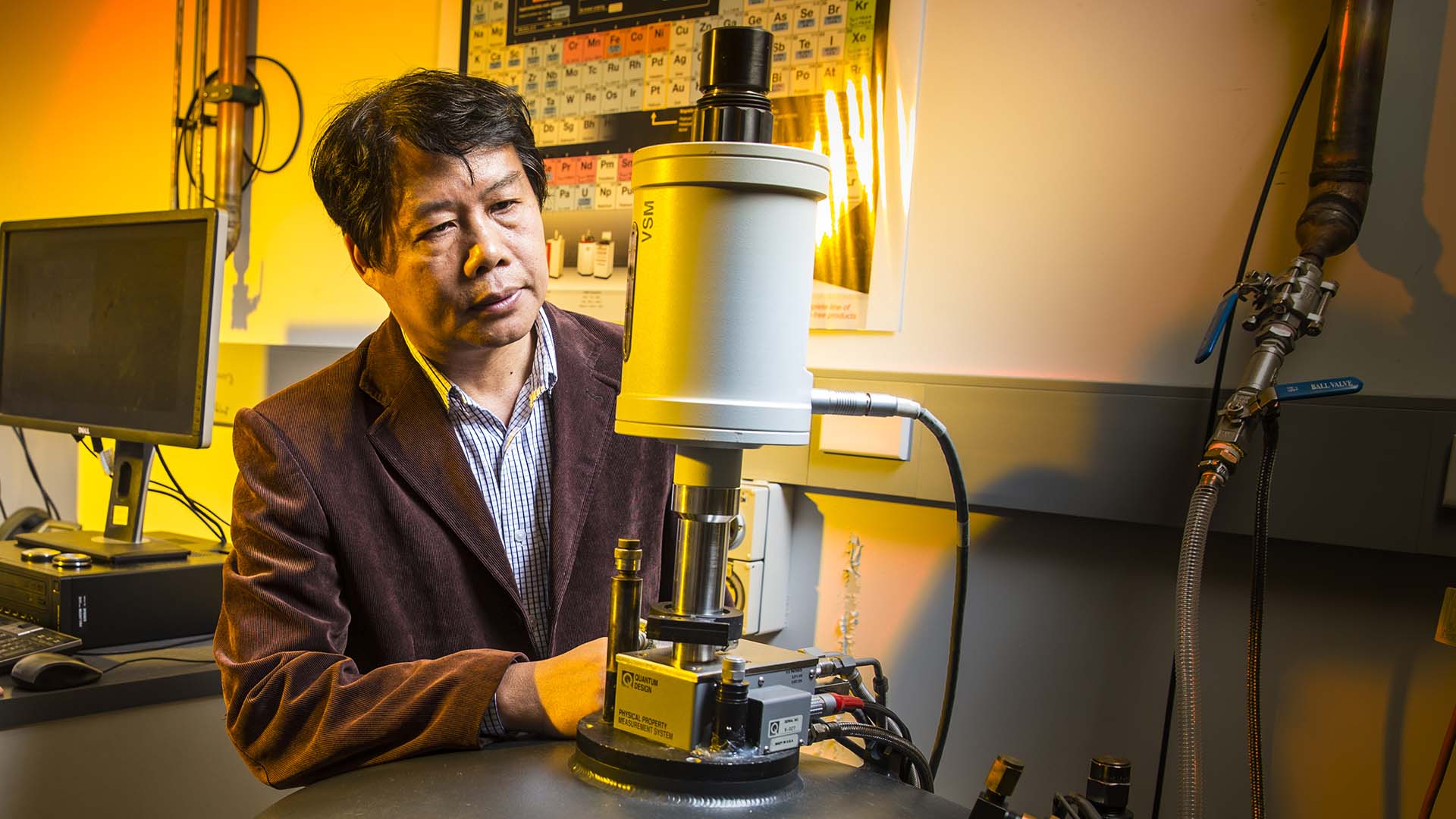July 6, 2022
Australia’s leading low-energy electronics technologies researchers gather at Innovation Campus
Scientists from seven universities come together to tackle the challenge of energy use in computation
Many of Australia’s leading researchers in low-energy electronics technologies are gathered at the University of Wollongong’s Innovation Campus for the ARC Centre of Excellence in Future Low-Energy Electronics Technologies (FLEET) annual workshop.
FLEET is a collaboration of more than 200 researchers from seven Australian universities seeking to develop ultra-low energy electronics to face the challenge of energy use in computation, which already consumes eight per cent of global electricity, and is doubling each decade.
UOW’s Institute for Superconducting and Electronic Materials (ISEM) hosts the University of Wollongong node of FLEET, under the leadership of ISEM Director, Distinguished Professor Xiaolin Wang (pictured above).
“FLEET’s annual workshop is our one opportunity each year for all Centre researchers to gather together and share research outcomes and progress,” Professor Wang said.
“I am looking forward to hearing about the research my colleagues have been conducting and excited about the new collaborations and ideas that this workshop will generate.”
Professor Wang is also a theme leader of FLEET’s efforts in developing the novel topological materials, new class of materials, and 2D materials that will underpin a new generation of ultra-low energy electronics.
The ISEM team is investigating the electronic, spintronic, and superconducting properties of novel electronic and spintronic systems such as topological insulators, high spin polarised materials, spin gapless semiconductors, superconductors, multi-ferroic materials, and new energy materials in various forms such as single crystals, atomically thin (2D) and thin films, and nano-devices.
The workshop runs from 4 to 8 July, with delegates from all FLEET nodes around Australia. FLEET participating organisations are Monash University, University of NSW, Australian National University, RMIT University, Swinburne University of Technology, The University of Queensland and UOW.
ABOUT FLEET
FLEET will meet the challenge of developing ultra-low energy electronics by realising new types of electronic conduction without resistance in solid-state systems at room temperature. These concepts will form the basis of new types of switching devices (transistors) with vastly lower energy consumption per computation than silicon CMOS.
Electronic conduction without resistance will be realised in topological insulators that conduct only along their edges, and in semiconductors that support superflow of electrons strongly coupled to photons. These pathways are enabled by the new science of atomically thin materials.
FLEET places Australia at the forefront of the new scientific fields of topological electronics, atomically thin materials, exciton condensates, and non-equilibrium phenomena. The Centre will build capacity in Australia for advanced electronics research, and train the workforce for the electronics industry of the future.
